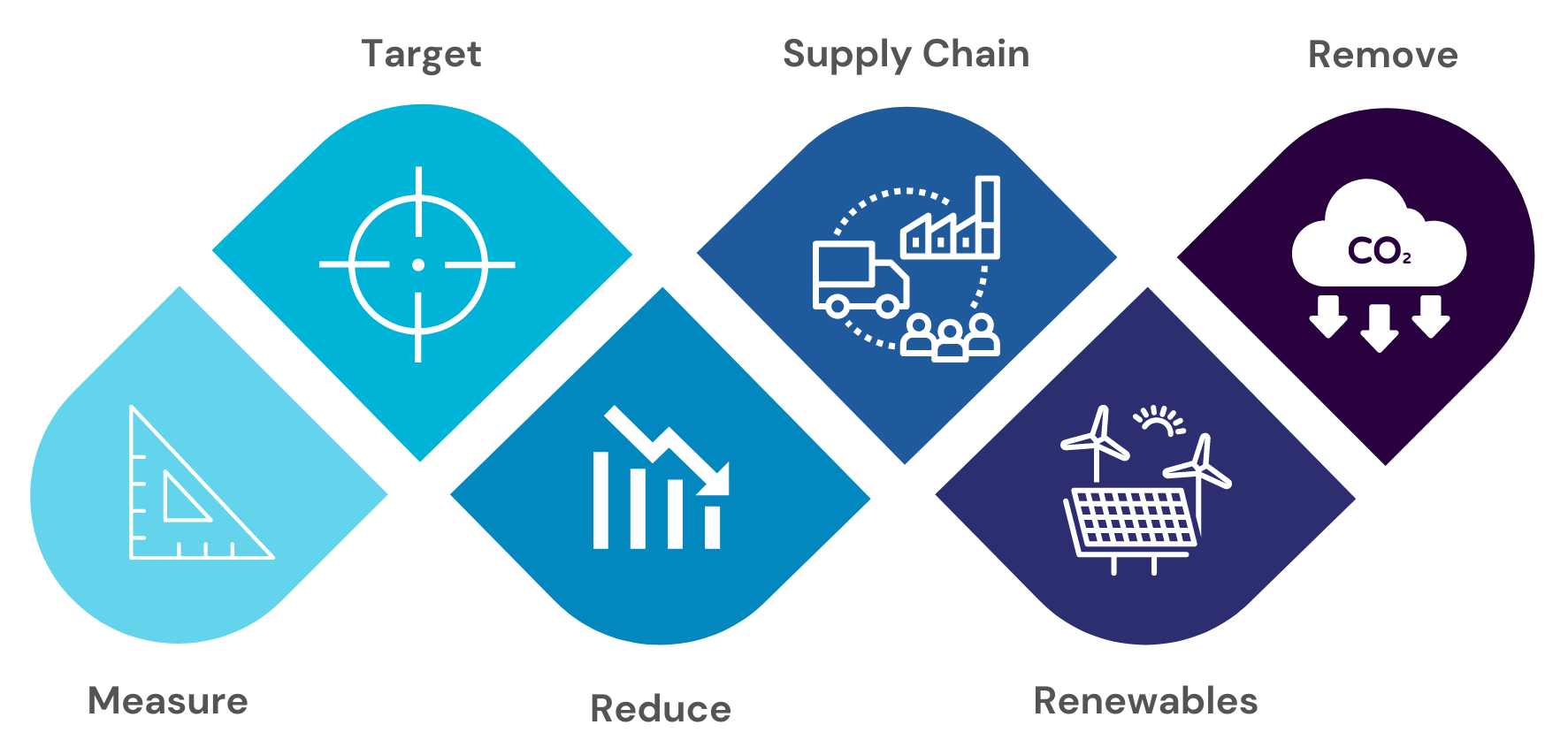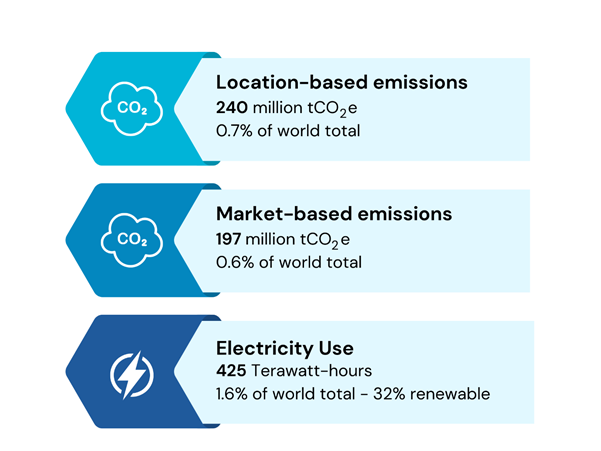Digital companies are playing a growing role in the race to eliminate harmful emissions from industry, transport, energy production, and other activities. By purchasing growing shares of renewable energy, investing in carbon removal, and issuing green bonds, the technology firms driving the world's digital transformation have also come to the forefront in efforts to reduce carbon dioxide (CO2) and other greenhouse gas (GHG) emissions. Learn more from the
press release
,
launch event
and the
ITU News blog
.
 Operational GHG emissions of the companies accounted for 239 million tonnes in 2020, equivalent to 0.76 per cent of the world total.
The overall footprint of digital companies is estimated to be much higher as not all companies calculate their upstream and downstream emissions. The 150 digital companies consumed 425 terawatt-hours of electricity in 2020, accounting for 1.6 per cent of global electricity production.
Operational GHG emissions of the companies accounted for 239 million tonnes in 2020, equivalent to 0.76 per cent of the world total.
The overall footprint of digital companies is estimated to be much higher as not all companies calculate their upstream and downstream emissions. The 150 digital companies consumed 425 terawatt-hours of electricity in 2020, accounting for 1.6 per cent of global electricity production.
Twenty companies accounted for three quarters of the operational emissions, while 9 companies headquartered in East Asia accounted for half of all the emissions of the 150 assessed in the report.
Compared to others, East Asian-headquartered companies use relatively little renewable energy. They have delayed adopting climate-friendly strategies, and will largely not reach carbon neutrality until after 2050 or around two decades later, on average, than companies headquartered in other regions.
Digital companies accounted for seven of the top ten largest corporate purchasers of renewable energy in 2020, making up almost half of the renewables purchased globally in 2020.
Corporate energy sourcing is a crucial factor as countries strive to cut emissions under the 2015 Paris Agreement. Google is partnering with UN Energy and Sustainable Energy for All to boost the availability of renewables to purchasers over the grid 24 hours a day and seven days a week. Low- and middle-income countries frequently face energy challenges, including limited electricity access or unreliable grids, resulting in over-reliance on dirty diesel-powered generator sets.
The products and services of digital companies have become crucial to enable emission reductions in other sectors, including through video conferencing, as well as smart metering for buildings and transport systems.
